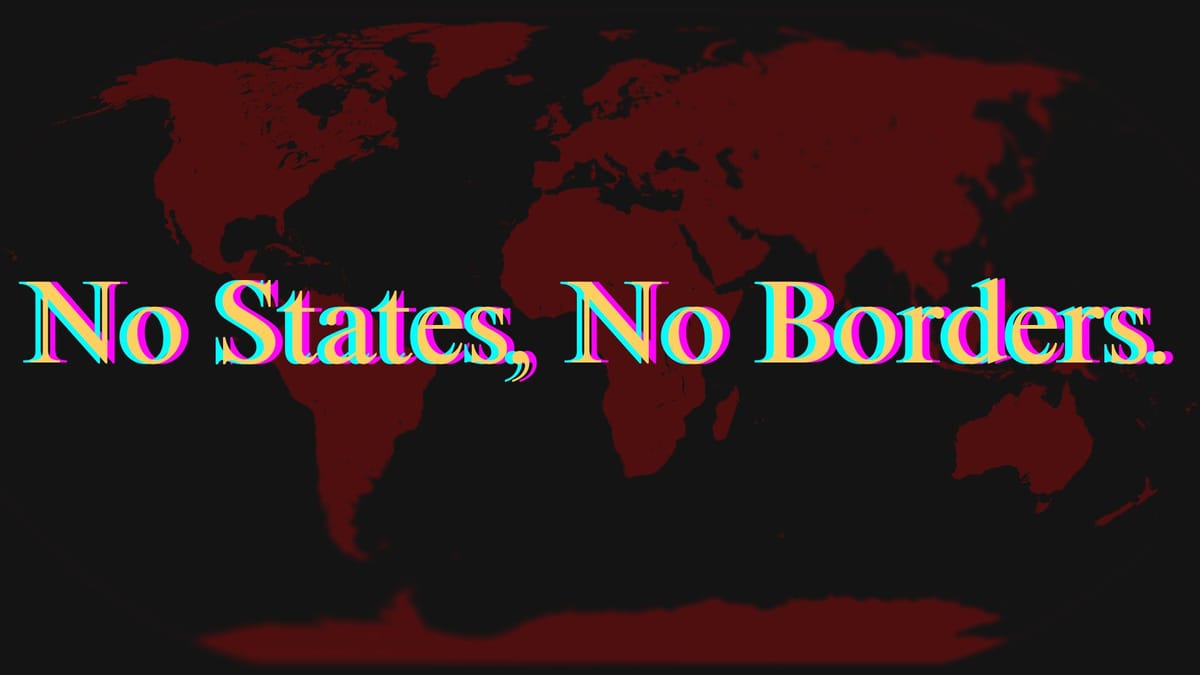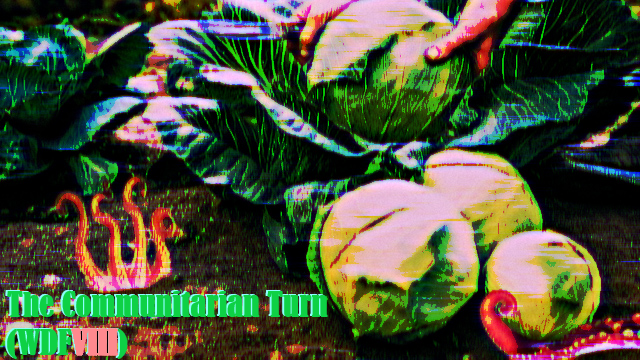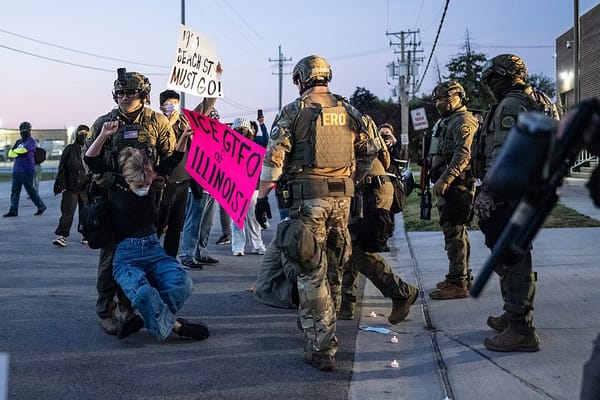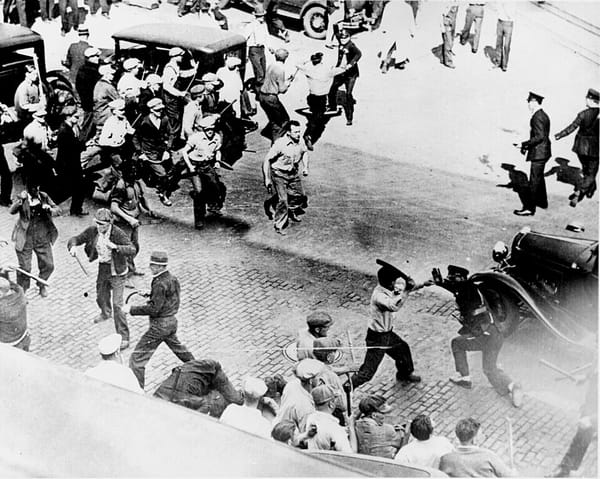The Illusion of State Borders and Discrimination Against Stateless Persons: One of Many Reasons We Don't Need the State

A Brief Overview of Stateless Persons
At the end of 2019, the United Nations High Commissioner for Refugees (UNHCR) recorded 4.2 million stateless persons worldwide. Three years later, the same organisation recorded 4.4 million stateless people globally. The fluctuating number of recorded stateless persons shows the uncertainty of the actual figure. UNHCR itself acknowledges that the real number may exceed 10 million, as many are unregistered. Amnesty International estimates an even higher figure, around 15 million people worldwide.
About 40% of the global stateless population is in the Asia-Pacific region, with Southeast Asia specifically having the most stateless persons. With over one million stateless people, the Rohingya from Myanmar, now spread across Myanmar, Bangladesh, Indonesia, and other countries in the region, remain the largest case. UNHCR also reports stateless populations in Thailand (475,009 people), Malaysia (108,332), Cambodia (57,444), Vietnam (30,581), and Brunei Darussalam (20,863). Again, the actual numbers are likely much higher than recorded.
A stateless person is someone who, under national law, is not recognised as a citizen by any country. This lack of citizenship means there is no legal bond between the state and these individuals.
The situation of statelessness can be classified into two types: de jure and de facto. De jure stateless persons are those who are not legally recognised as citizens under the laws of any country, while de facto stateless persons are those who, in practice, cannot enjoy the rights of citizenship even if they have a claim to citizenship in one or more countries, such as refugees and/or asylum seekers.
The international community has recognised statelessness as a global issue. At least there are two international human rights instruments that address stateless persons: the 1954 Convention Relating to the Status of Stateless Persons and the 1961 Convention on the Reduction of Statelessness. Southeast Asian countries have a poor record of ratifying these conventions. Only the Philippines has ratified the 1954 Convention, and none have ratified the 1961 Convention.
Statelessness in Indonesia: A De Jure Review
According to Law No. 12 of 2016 on Indonesian Citizenship, an Indonesian citizen is:
a) anyone who, under the law and/or government agreements before this law took effect, was already an Indonesian citizen; b) a child born from a legal marriage between two Indonesian citizens; c) a child born from a legal marriage between an Indonesian father and a foreign mother; d) a child born from a legal marriage between a foreign father and an Indonesian mother; e) a child born from a legal marriage where the mother is Indonesian and the father is stateless or the father's country does not grant citizenship to the child; f) a child born within 300 days after the death of an Indonesian father from a legal marriage; g) a child born out of wedlock to an Indonesian mother; h) a child born out of wedlock to a foreign mother, acknowledged by an Indonesian father before the child turns 18 or marries; i) a child born in Indonesia whose parents' citizenship status is unclear; j) a newborn found in Indonesia whose parents are unknown; k) a child born in Indonesia if both parents are stateless or their whereabouts are unknown; l) a child born outside Indonesia to Indonesian parents if the country of birth grants citizenship to the child; m) a child whose parent's citizenship application is approved, but the parent dies before taking the oath or pledge of allegiance.
The law also outlines the principles of citizenship:
Ius sanguinis (citizenship by descent); Ius soli (citizenship by place of birth, limited to certain cases); Single citizenship; Limited dual citizenship for children.
Thus, Indonesian law does not recognise stateless persons. There is no regulation for the protection of stateless persons in Indonesia. Under Law No. 12/2006, there are only two categories: Indonesian citizens and foreigners. The law does not acknowledge those without citizenship. Although there are provisions for loss of citizenship, it is unclear how the government deals with individuals who lose their citizenship.
Persons at Risk of Statelessness: A De Facto Review
Stateless persons are again classified as de jure and de facto. Besides those not legally recognised as citizens by any country, there are also de facto stateless persons who may have (or have had) citizenship but cannot access their rights. These are people at risk of statelessness. In Indonesia context, groups at risk include:
a. Refugees and/or Asylum Seekers
Refugees are people who flee their country due to serious human rights violations and persecution. The risks to their safety and lives are so great that they have no choice but to seek safety elsewhere because their own government cannot or will not protect them. Refugees have the right to international protection.
There are many reasons why it is dangerous for someone to stay in their own country and might be forced to leave their country, including violence, war, famine, extreme poverty, sexual orientation or gender identity, or the effects of climate change or natural disasters. Often, these reasons overlap.
Some refugees leave with the intention of obtaining new citizenship and may still be able to legally access basic rights in their country of origin, but practically, they are not. Others have already lost their citizenship or had it revoked, making them unable to access basic rights in their home country and lacking legal protection elsewhere.
Those in the second group can seek protection from UNHCR, which conducts Refugee Status Determination (RSD) procedures. This involves registration and individual interviews, with interpreters present. The process results in a reasoned decision on whether to grant refugee status, and individuals can appeal one time if denied. Those denied refugee status become persons with final rejection status, left without legal protection from their country of origin or UNHCR.
The Rohingya community from Myanmar is one of the world's largest stateless populations. As of September 2020, about 600,000 Rohingya remain in Myanmar, while over 900,000 have fled to Bangladesh, and others to neighboring countries including Thailand, Malaysia, Brunei, and Indonesia. As of May 2022, UNHCR recorded 627 stateless refugees in Indonesia, from Iraq, Iran, Saudi Arabia, Kuwait, Japan, and the Rohingya. The number has likely increased due to new arrivals of Rohingya refugees in late 2023 and early 2024.
UNHCR was established by the UN General Assembly in 1951, with a mandate to provide international protection to refugees. Those identified as refugees after RSD receive protection while UNHCR seeks long-term solutions, usually resettlement in another country. As of July 2020, 3,375 asylum seekers and 10,278 refugees were registered with UNHCR Jakarta.
b. Undocumented Migrant Workers
People who go abroad without documents are vulnerable both in the destination country and upon return. They may have citizenship in their country of origin, but as undocumented migrants, they lack legal protection in both countries. First, because they are not officially registered in his country of origin as a migrant, second, because in the destination country they are not under bilateral binding legal guarantees. In this situation, the person is in the same vulnerability as stateless people.
The vulnerability can also be exacerbated by conditions where an undocumented migrant worker has been in his destination country for too long so that they do not renew their citizenship in their country of origin, so that they become a stateless person.
In practice, undocumented migrants often marry in their destination country so that mixed marriages occur. When they have children, often the children cannot have documentation so that they are born without citizenship.
In Indonesia, in Law No. 12/2006 there is actually a regulation that allows children from mixed marriages to have citizenship. In practice, people who have mixed marriages and have children have difficulty taking care of their children's documents in terms of citizenship administration, which then has implications for the enjoyment of other basic rights.
Statelessness and Human Rights
Although only the Philippines has ratified the 1954 Convention and no Southeast Asian country has ratified the 1961 Convention, other human rights instruments like Convention on Elimination of Discrimination Against Women and the Convention on the Rights of the Child guarantee protection for stateless persons, and these are more widely ratified in the region. The ASEAN Human Rights Declaration, especially article 18, also guarantees the right to nationality.
The lack of international and regional regulation leads to human rights discrimination, especially regarding access and enjoyment of rights for stateless persons. Human rights are universal, applying to everyone regardless of nationality, gender, ethnicity, religion, language, or status. From the right to life to the right to food, education, work, health, and freedom, these rights are inherent to all.
In human rights itself, the concept of duty-bearer and rights-holder is known. Given the universal nature of human rights, every individual is a rights holder and is entitled to the same rights without distinction. Meanwhile, the duty bearer is primarily a state actor. This includes all state organs such as parliament, ministries, local authorities, judges and judicial authorities, police, teachers or counselors. All of these are legal duty bearers, in this case the state at all levels to fulfill its duties to respect, protect and fulfill human rights.
The principle of human rights which has then formulated every human being as a rights-holder and every state as a duty-bearer, accompanied by the principle of universality which emphasizes that human rights are inherent in every individual without exception including without distinguishing their nationality, emphasizes that in fact stateless people have the same rights as those who have citizenship to be guaranteed by any country their access and enjoyment of human rights.
As a member state of the UN Human Rights Council and a state party to 9 of the 10 international human rights instruments, Indonesia should adhere to the principle of universality of human rights where the state as a duty-bearer should carry out its 4 functions in the context of fulfilling, respecting, protecting and promoting human rights for all right-holders, including stateless people, as well as people at risk of statelessness.
Discrimination Against Stateless Persons: The Impact of the Illusion of Borders
Globally, the existence of states has been the root of many grave problems throughout history. Colonialism-invasions from centuries ago, World War I, World War II and the Cold War which led to the deaths of millions of people are examples of problems in the past that were born from the existence of an entity called a state.
Today, new crimes against humanity, such as Israel's genocide of Palestinians, Russia's invasion of Ukraine, and Myanmar's genocide of the Rohingya, all stem from the existence of states. Specifically, Myanmar's exclusion of the Rohingya from its list of recognised ethnic groups via the 1982 Citizenship Law has rendered them stateless.
Another problem that arises from the existence of an entity called a state is the existence of stateless people. If reversed, then we can see, the root of the problem of the existence of stateless people is the existence of the state itself, and that always gives rise to other problems later on, namely the lives of those who are called stateless people.
Research by the Human Rights Working Group (HRWG) and SUAKA found that communities at risk of statelessness in Indonesia face significant barriers to accessing basic rights. This research focused on the lives of Rohingya refugee communities, people in final rejection status from UNHCR and living independently, mixed-marriage families where one or both partners do not have residency documentation, and mixed-marriage families who have children born in Indonesia and are not yet documented.
The statelessness experienced by these communities has given rise to so many violations of their fundamental rights. At least, there are several rights that cannot be enjoyed properly by these stateless people, namely:
Right to Education:
Freedom to access education requires citizenship documentation. This is not something that is easily obtained by people at risk of statelessness. Administrative reasons are often used as obstacles for refugees or stateless people to enroll their children in formal education.
Children who can access formal education tend to attend private schools because of the leniency in document requirements, unlike in state schools. Especially for those who do not have any identity, they can only receive home education by their parents or informal education that is generally not in accordance with any curriculum.
In addition to the fact that this practice shows that children's rights to access education are limited and children are prevented from making their own choices solely because of their own identity and the identity of their parents, this is also difficult for them because of the limitations for stateless people to get jobs, while private schools or home schooling are expensive.
Right to Work:
Refugees or asylum seekers who have received refugee status from UNHCR through the RSD mechanism are allowed to receive logistical and/or economic assistance from UNHCR. However, this is not the case for refugees who have received final rejection from UNHCR, because stateless people are not legally permitted to work in Indonesia.
The right to work as a form of livelihood is stated and guaranteed in the 1951 Convention relating to the Status of Refugees. The fact that the convention has not been ratified means that Indonesia is not obliged to provide employment for refugees, while in practice UNHCR cannot always provide refugee status through the RSD mechanism to all refugees.
In addition, based on Government Regulation No. 48 of 2021, the right to work for refugees must legally follow the applicable regulations regarding foreigners, including having to have a KITAS or KITAP (some kind of working permit) or work visa, which is not possible for stateless people or people at risk of statelessness.
This situation makes it difficult for stateless people to find a way to survive. Generally, they initially rely on remittances from their relatives or friends outside Indonesia, but this source of income does not last long. This situation also has a significant impact on other situations that have a crucial impact on their lives, one of which is health.
Right to Health:
In addition to vulnerable health conditions due to inadequate quality of life as a result of economic conditions due to not being allowed to work, the absence of citizenship documents is one of the most significant causes of being able to receive health services as an impact on their ability to seek treatment financially. They must independently pay for the costs that arise, including the cost of actions, consultations, medicines and transportation.
Although Puskesmas (State Health Facility) can be accessed cheaply and easily, they cannot meet the need for further care. Meanwhile, only people who are considered to meet certain criteria can be given health assistance by IOM, UNHCR or other charities, one of which is by having a UNHCR card or meeting the 'emergency' criteria set by each agency.
Right to Information:
In the digital era, the right to information is closely and inseparably linked to access to the internet. Unfortunately, stateless people and people at risk of statelessness face difficulties in accessing the internet using their mobile phones. Registration of Indonesian mobile phone numbers requires a Population Identification Number (NIK) which is only available to Indonesian citizens. Registration of telephone numbers with passport numbers is also not possible for them.
The existence of stateless persons (including, at the same time, persons with citizenship) is caused by the existence of states that impose their borders.
The community living on the border of Sangir, between Indonesia and the Philippines in northern part of Sulawesi, for example, is a concrete example of how modern state boundaries cause the existence of statelessness. UNHCR data states that the population of this community is around 3,000 stateless people, who have lived in the area for generations long before the existence of modern state boundaries. The Indonesian government then provided a mechanism to accommodate those who wanted to become Indonesian citizens. Of the approximately 3,000 people, 1,400 of them were willing to become Indonesian citizens. However, of the 1,400 people, in practice only a few hundred of them have become Indonesian citizens.
Modern state boundaries then gave birth to a relationship called the state and its citizens. One approach to viewing the state and its relationship with citizens is the concept of Imagined Communities initiated by Benedict Anderson, where the nation state is seen as a socially constructed community, imagined by people who consider themselves part of a group. Through this concept, he defined a nation as an “imagined community.” A nation is considered an “imagined” entity because members of even the smallest state will never know most of its members, meet them, or even hear about each other.
Members of an imagined community may never know each other in person; however, they may share common interests or identify as belonging to the same nation. Members of the community hold in their minds a mental image of their affinity. For example, a sense of nationality with other members of one's nation when the imagined community participates in a major nationalistic event such as the Olympics or the World Cup.
Anarchist Critique of the State versus Obsolete Critique of Anarchist Critique of the State
The uncountable amount of problems that gave birth to atrocities and a series of horrific crimes against humanity, as well as the irrationality of the entity called the state that Benedict Anderson tried to put forward, proves anarchism's criticism of the existence of an entity called the state as a manifestation of absolute hierarchy.
However, these things are also not able to make a number of groups - which are unfortunately quite large - to acknowledge the truth of the anarchist criticism of the importance of eliminating the state, or at least taking a critical position on the existence of the state.
In fact, this also happens in most social movement groups that are already capable enough to accept the idea of the importance of criticizing the state, but not the idea of the importance of criticizing the existence of an entity called the state.
Groups that deny anarchist criticism of state entities, are still trapped in an outdated idea called “good governance”, assuming that the problems of crimes against humanity and all sorts of other horrors – which have been the focus of their work – including human rights violations, can be eliminated if the reformist social movement is able to push for a good government system, filled with ideological, revolutionary people, so that they are able to shift the oligarchs with all their greatness and power from the government benches and strategic positions in decision-making and give birth to an ideal government, upholding human rights and humanity, and others – as if this is possible to do.
This, to some extent, is similar to the Marxist idea of the dictatorship of the proletariat. As if the dictatorship of the proletariat, which through revolution is imagined to be able to take over power, will succeed in realizing the idea of a socialist society. We know this as the classic debate between Marx and Bakunin which until now is still an unresolved debate between Marxists and anarchists.
Obsolete critiques of anarchist critiques of the existence of the state –and anarchist ideas to abolish the state– are usually wrapped up in cynical questions like “who will rule society?”, “if there is no state and no one to lead society, won’t it be chaotic?”, “if there is no state and its apparatus such as the police and army, who will catch criminals and protect us if we are attacked by other countries?”, or “is it really possible to live without a state?”
Such questions arise as a manifestation of the very limited space of our imagination to be able to imagine alternative forms of collective life other than the state. This is probably because from birth to death, most of us live within the framework of the state, starting from birth certificates to death certificates which all must be legalized by the state, so that if there are no documents legalized by the state, then it is as if our birth is illegitimate, we are considered to have never existed, and our death means nothing.
This is a process of internalization of the mind throughout thousands of years of human civilization history which has always been dominated by the existence of the state. There is no other way than the state. There is no other way of living together other than the state. As the word "anarchist" is still interpreted and embedded with negative connotations in the Great Dictionary of the Indonesian Language, this is an attempt to dwarf our political imagination about other possibilities besides the state.
In fact, history records that some collective living practices in forms other than the state exist and are possible. They have been practiced in the past and some are still practiced today.
The Paris Commune in 1871 is one example that can be seen as one of the practices. As an effort to live collectively, the Paris Commune was more like a collective run by citizens autonomously, free from the French state government, and succeeded in laying the fundamental foundations for economic change that was no longer capitalist-centric but returned ownership and control to workers through a model of worker cooperative. Throughout the life of the Paris Commune, 43 worker cooperatives were successfully formed.
In addition to the Paris Commune, another effort that we can also look at is the Rojava Revolution, an attempt to build a sustainable society that emerged in the Kurdish-majority region in the context of the Syrian war. Since 2012, the people involved in this experiment have framed the revolution and their idea of radical democratic citizenship as an effort to raise consciousness against the state system.
The people of the Rojava administrative region are often referred to as ‘the largest nation without a state’. The negative connotation of this group of around 40 million people reflects the world’s state-centric geopolitical order, because Rojava does not function the way states do: it is an autonomous administration set up to manage the common life based on the values of direct democracy.
The people who lived and survived this revolution continued to build and develop relatively stable political structures. Legal institutions, such as peace committees, were introduced. These consensus-based bodies are responsible for resolving conflicts and have largely replaced the hierarchical court system common in other countries. Rojava also managed to create two social contracts, a kind of constitution adopted in 2014 and 2016 as a result of a collaborative social process in which collective discussions determined which topics would be included.
The Paris Commune and the Rojava Revolution. We can discuss or debate how both efforts have their own failures and shortcomings. After all, the Paris Commune was defeated in less than 70 days, it only lasted two months until the city of Paris was surrounded by the French army. However, perhaps two months for the Paris Commune is not an absurdly short time for an experiment that is the total antithesis of how the state and capitalism work. Likewise with democratic confederalism which emphasizes the autonomy of regions that are free from the centralised power of the state based on participatory politics colored by the values of feminism and environmentalism that were experimented with in Rojava.
Spanning more than 100 years, the existence of these two anti-state experiments is a manifestation of the validity of people's anger at the entity called the state with its working methods supported by exploitative capitalism, which is packaged with all kinds of violence, oppression, exploitation and crimes against humanity not only for those who are its citizens, but also for those who are not its citizens. And that anger is timeless.
Both experiments ultimately prove that life without a state is not just imaginable, but possible.





